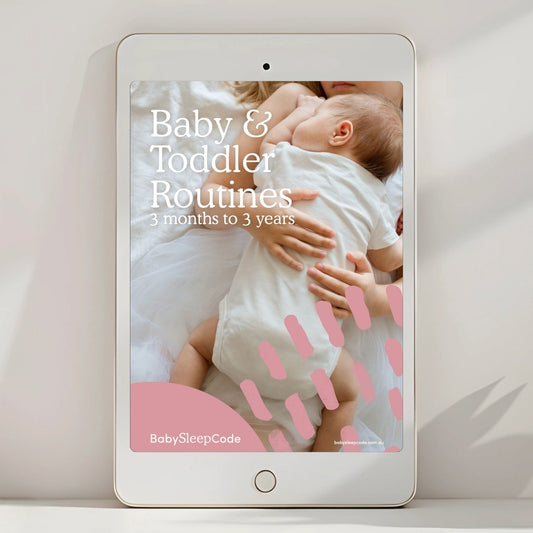Did you know that infants are great at self-regulating their calorie intake? Studies show that they have an innate ability to perfectly balance their intake to match their growth needs and energy expenditure over roughly a 24-hour period. So, if your little one is feeding excessively during the night, it's natural for them to consume less during the day. And here's the kicker: because they haven't consumed enough during the day, they'll wake up at night to make up for it. Getting them back to sleep without feeding can feel nearly impossible! This is known as 'reverse cycling'.
Let’s talk about the signs your baby is reverse cycling, what causes it, and how to break this habit.
What is reverse cycling?
In short, reverse cycling is when a baby consumes a significant portion of their daily caloric intake during nighttime feeds rather than during the day. This pattern can be exhausting for parents, as it means getting up excessively through the night to feed when other babies the same age might be sleeping through.
Signs your baby is reverse cycling:
- They wake excessively overnight and will only fall asleep by feeding.
- They have short or distracted feedings during the day.
- They are picky eaters or show a lack of interest in solid foods.
- They have no interest in their first feed of the day.
How many night feeds should my baby be having?
Always check with your GP or paediatrician before reducing or weaning night feeds. In general, if your baby is healthy, tracking well on their growth curve, and you’ve been given the go-ahead to reduce night feeds, most babies will only need:
- 4 to 5 months: Up to two feeds overnight, although some will comfortably sleep 11–12 hours without a feed.
- 6 to 8 months: Zero to one feed overnight, with the average baby able to sleep through without needing a feed.
- 9 to 12 months: Babies will not need any feeds overnight.
Why do some babies start reverse cycling?
For newborn babies under 3 months, it can happen when they have their days and nights confused. For older babies, it usually occurs when a baby relies on feeding to fall asleep or to resettle after waking. It can also happen after a period of illness, where you might have been feeding them more at night to soothe or keep them hydrated, and now it has become a habit.
How to tell if my baby is relying on feeding to fall asleep or is actually hungry?
If your baby has been reverse cycling for a while, they may now be waking hungry at night because their internal body clock is so used to being fed through the night and is giving them hunger cues. This is why it can be a tricky habit to break. You might have already tried to get them back to sleep without feeding, but it led to lots of tears, and you eventually fed them anyway.
Reverse cycling versus a growth spurt
During growth spurts, some babies might want to feed more frequently at night or have longer and larger feeds during the day. If you're trying to figure out whether your baby is feeding more at night simply due to a growth spurt or if they're reverse cycling, here's the simplest way: a growth spurt will only last a few days, whereas reverse cycling can become a habit that lasts for months or more if not addressed.
How to stop a baby from reverse cycling
So, how do you break this cycle? Focus on reducing their total milk intake overnight by either spacing out their feeds or reducing the volume (or time at the breast) at each feed. As their milk intake lessens overnight, you should start to notice them feeding or eating more during the day and waking less (or not at all) at night.
Keep in mind though, if your baby isn't confident in falling asleep independently, this can be a major reason why they're waking so often at night. Even if you manage to stop them from reverse cycling, they may still wake frequently during the night.
If nights feel harder than they should be…
Our age-specific sleep guides show you exactly how to reshape your baby’s days and nights, reduce unnecessary wakes, and support longer stretches of sleep within a matter of days. Raved about by parents who thought they had tried everything.
Sources:
Brown A, Harries V. Infant sleep and night feeding patterns during later infancy.. Breastfeed Med. 2015 Jun;10(5):246-52. doi: 10.1089/bfm.2014.0153. Epub 2015 May 14. PMID: 25973527.
Adair LS. The infant's ability to self-regulate caloric intake: a case study. J Am Diet Assoc. 1984 May;84(5):543-6. PMID: 6715750.
















